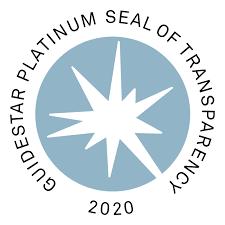
3 minute read
Making a Difference
Making a Difference By Ericka Foster
S urvival i s its own form of resistance. I f you can make it to the end of the day in the same condition tha t you started, you are doing ok. But as you watch the world’s current events, you may be inspired to get involved. You may not feel comfortable going to a protest and risking a run - in with the law. Below you will find a few suggestions on what you can do.
Advertisement
Sign the petition
At the time of print, Change.org has 706 petitions related to Black Lives Matter. On this site, users can find petitions related to the cause s, or create a petition. This is one of those opportunities to use the internet to you r advantage. When enough people have signed the petition , it can be submitted it to decision - makers for change. I f you want to create a petition, it is best to have an idea of where you are going to submit the petition , and whether that person or organization can do what you are requesting.
Voluntee r
As you go throughout your day, you’d be surprised at how often you come across places and opportunities to volunteer. You might come across a food drive or a clothing drive at a local church. A podcast that you are interested in may offer information for how to get involved. For example, on Pod Save America, they offer ways for listeners to get involved with the voting process. Reading this magazine, you might find be interested in learning more about F.O.R.T.E. House and how you can get involved.
As someone who has been involved in the criminal justice system, you may have come across an organization that has helped you make the transition back into society. You can reach out to them and see how you can help.
You can also check the internet. Volunteermatch.org is a website that matches volunteers with organizations that need volunteers. There are other websites that focus on local volunteer opportunities.
Donate
Money talks – especially when you want to make a political change. I t may feel like the small amount you have to give won’t make a difference, but every little bit counts. Many organizations are happy to accept several small donations. In many cases, an organization will have a way to accept donations directly from your pa ycheck. Making a monetary donation isn’t just about the amount of money that you donate. It says to decision makers that you are willing to put your money where your mouth is – so they’re already paying more attention.

Use your words
Speaking up is more im portant than you may think. Y ou can change hearts and minds just by speaking up about your experience. Right now, having tough conversations may center around racism and policing. However, the same principles apply to having a tough conversation whether you are talking to a colleague about incarceration, your teenager about sex, or your partner about your HIV status.
Tough conversations start with honesty and curiosity. It can ’ t hurt to a cknowledge the awkwardness of the conversation. I f our end game is to be better after this conversation, let’ s be awkward. Being recently relea sed from prison, it may feel like the world is against you. If you are having a conversation with someone who have been hurt by a loved one who was formerly incarcerated, there will be two people with their own baggage trying to have a conversation. In ord er to have a productive interaction , we have to drop victim and villain , right and wrong. That is why it is so important to listen in these types of conversations. We have to listen to what the other person needs, and resist the urge to defe nd.
Changing the world isn ’ t going to happen overnight (maybe not even in your lifetime), but change isn ’ t always about large dramatic steps. These are just a few ways you can make the world a little bit better.
We are pleased to announce that Positive Transitioning has earned the 2020 Guidestar Platinum Seal of Transparency.





